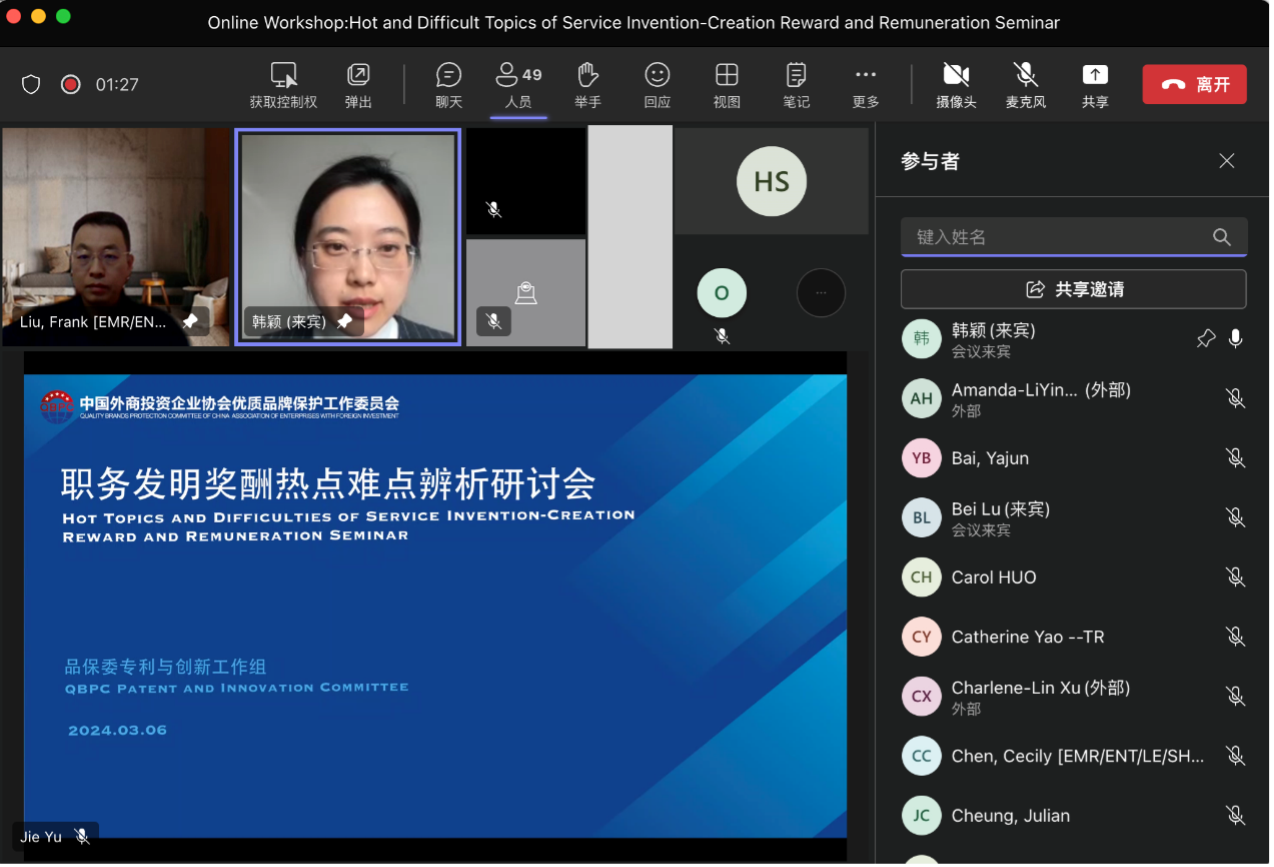An online seminar was held to discuss hot topics and difficulties of service invention-creation reward and remuneration by the Quality Brands Protection Committee of the China Association of Enterprises with Foreign Investment (QBPC) Patent and Innovation Committee on March 6, 2024. Han Ying, Partner of Deheng Law Offices, gave a lecture on the regulations of service-creation reward and remuneration, case study, and the creation of relevant corporate policies. The event was moderated by PIC Chair Frank Liu, and nearly 50 QBPC members participated online.
Han Ying started with the following controversial points in some well-known cases: (1) The laws applicable to the disputes on the service invention-creation reward and remuneration in multinational companies; (2) Who is the obligor to pay the reward if the assignee is separated from the employer; (3) The legality of the corporate remuneration system for inventions; and (4) The burden of proof in calculating the remuneration for inventions.
Revolving around the above, Han Ying elaborated on her research over 155 cases, which covered the statistics on the number of cases, the success rate, the amount of compensation, the types of patents and the distribution of industries as well as the analysis on the focuses of the litigation debate, such as lump-sum payment, the statute of limitations, the validity of the system of service invention-creation, the non-cash payment of remuneration, and diverse conditions, including the patent yet to be implemented, the implementation of the patent without any benefit, and the patent invalidity. According to her, overall cases had been on a rise, especially in more developed regions. In particular, she called for businesses in electronic, mechanical, and chemical industries to get fully prepared.
The case statistics also revealed that many enterprises have not formulated relevant policies, or their existing policies are unlikely to be recognized by the court due to non-compliance and irrationality. As a result, they lack the capacity in formulating relevant policies to cope with the potential lawsuits on reward disputes. In order to handle potential litigation,, they should ensure the validity of their policies while reserving associated evidence. Otherwise they would be left in an awkward position in litigation. In the historical process of pursuing the strategy of an innovative country, China has issued the fifth revision of the Patent Law and the Law on the Promotion of the Transformation of Scientific and Technological Achievements, which might lead to an increase in the disputes over service invention-creation and hiking compensation.
During Q&A, Han Ying answered questions including how to provide the reward for the invention-creation to employees of all parties during the cooperation with third parties such as universities, and whether the reward should be offered to former employees.

